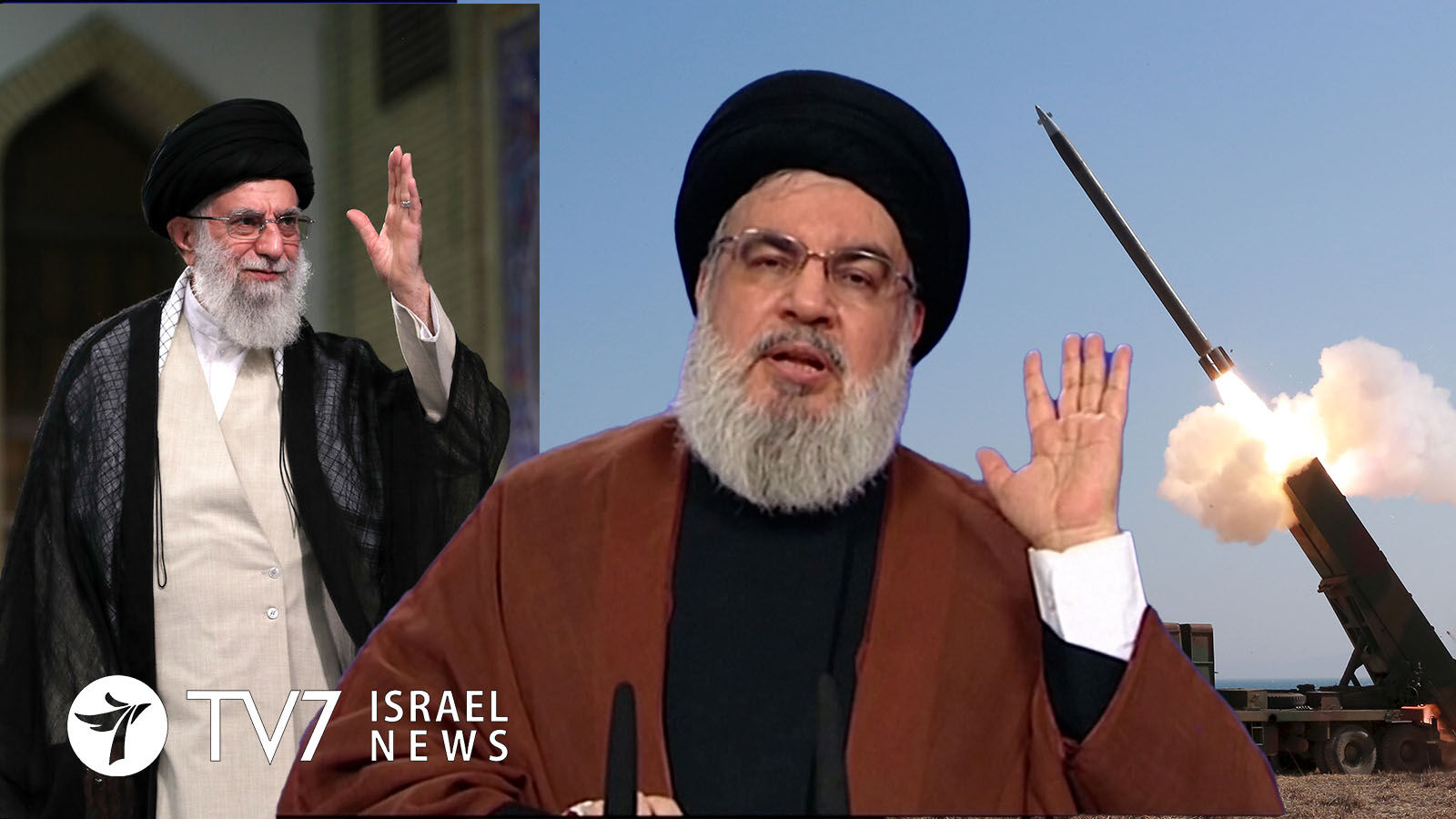The leader of Lebanon’s Iran-backed Hezbollah group has proclaimed for the first time that it now has the ability to convert thousands of standard rockets into precision-guided missiles and to produce drones within Lebanon – thanks to the Islamic Republic.
By Erin Viner
In a televised speech to followers broadcast from an unknown location, Sheikh Sayyed Hassan Nasrallah said Hezbollah was able to accomplish the military feat with the cooperation of “experts from the Islamic Republic of Iran.”
After admitting the production had been spurred by arch-foe Israel’s increased use of UAV (unmanned aerial vehicle) technology, he boasted that “We have been producing drones in Lebanon for a long time.”
Urging the terrorist proxy’s allies to purchase Hezbollah’s drones, he added, “whoever wants to buy them, submit an order.”
The last major conflict between Israeli and Hezbollah was the month-long Second Lebanon War in 2006, although the sides have exchanged gunfire across Lebanon‘s southern border. The IDF has also intercepted several Hezbollah drones that had crossed into Israeli air space, while the Iran-backed group claims that its increased anti-UAV capabilities have led to a decline in Israeli drone overflights.
While there has been no immediate Israeli response to Nasrallah’s statements, last week Israel published the names of three Lebanese companies that it accused of supplying materials for Hezbollah’s precision-guidance missile project, a move designed to generate international economic pressure on the Shi’ite Muslim group.
Israel’s Defense Minister Benny Gantz authorized sanctions against 3 Lebanese companies on 6 February for supplying raw materials for Hezbollah to produce the missiles.
“Instead of helping and rehabilitating the citizens of Lebanon – Hezbollah continues to endanger the citizens of Lebanon and the entire country, and sow chaos,” declared Defense Minister Benny Gantz, as he signed the orders against the Toufali, Moubayed and Barakat companies.
According to a statement TV7 obtained from the Israeli Ministry of Defense (IMoD), all of the firms “maintain trade relations on an ongoing basis” with the internationally-recognized terrorist organization, that provide “machinery, oils and ventilation systems that are required for Hezbollah‘s production line and the precision project in particular.”
The move was implemented as part of the Israeli Ministry of Defense (IMoD) campaign to ratchet up economic pressure on Hezbollah missile development in a joint operation by Israel Military Intelligence and the National Bureau for Counter Terror financing of Israel (NBCTF) at the Ministry of Defense.
This is the second time Israel’s Defense Establishment has taken such steps, following issuance of a similar seizure order last August against another Lebanese firm.
“The Defense Minister’s seizure orders will allow the companies to be blacklisted in the world’s financial systems and will make it very difficult for them to continue operating,” said the statement.
“We will continue to reach out to the Lebanese people and offer humanitarian aid,” stressed Defense Minister Benny Gantz, while also taking ‘resolute action against the introduction of advanced weapons that will endanger citizens in “the heart” of the neighboring state.’
Israel’s top defense official also emphasized that “Hezbollah, with Iran’s support, is undermining the ability to stabilize Lebanon.”
Lebanon is struggling to cope with what the World Bank has called one of the worst economic collapses in modern history, that erupted in 2019 due to colossal state debt amid allegations of deep-rooted political corruption.
“It is important to clarify: the citizens of Lebanon are not our enemies, therefore I offered this year alone assistance to Lebanon on 4 occasions, including this past week in an offer relayed to the commander of UNIFIL” (the United Nations Interim Force in Lebanon peacekeepers), he said, specifying that Israel “seek sto help the Lebanese Armed Forces that are suffering of elemental logistical necessities following the desertion of 5,000 soldiers amid Hezbollah’s recent surge in strength due to direct support from Iran.”
He then reiterated that Israel “will not permit Iran’s Hezbollah proxy in Lebanon to bolster itself amid ongoing chaos in the country,” and that the Beirut government bears ultimate “responsibility for any harm or new threat against the citizens of Israel.”
